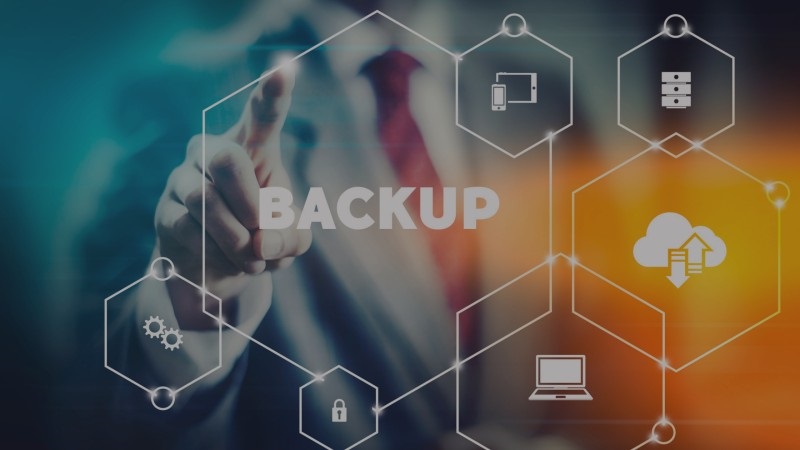While we like to think that the information stored on our computers is safe and protected from any harm. That is unfortunately not the case. Data loss by hardware attacks, ransomware, and other cybercrime is always a looming threat. Plus, you can’t forget about system failure.

Ultimately, there are many ways you or an outside user can destroy or displace the information on your computer. As most rely on their laptops rather heavily, especially those who work from home. It’s become essential to back up files and avoid compromising sensitive information. There are many ways to do this. So keep reading to find out the best way to back up data at home based on your needs.
WHY YOU SHOULD BACK UP YOUR DATA
Sometimes all it takes is a spilled drink or accidental drop, and your system is damaged for good, destroying all files that once existed there.
Backing up your data will help keep all your sensitive documents safe and easy to access. The methods listed below make it so you can always pull up pictures, emails, presentations, and other important files at the drop of a hat!
TOOLS TO BACK UP YOUR DATA BY YOURSELF
Many are surprised at how simple it is to back up data. Often, you can protect all your system files in just a few clicks!
USB Flash Drive
Let’s start with the obvious. Are USB sticks (AKA flash drives, thumb sticks, and jump drives) a reliable tool for long-term data storage? While they are convenient and affordable, they may not be the best for your work device.
Their storage capacity generally ranges from 128 MB to 256 GB, which may be too small for all your work files. But it could work for personal use. Since they are so small in size, it’s very easy for them to get lost or destroyed.
The perk is that you do have a tangible way of holding onto your data, which many prefer. However, we think there are plenty of more advanced solutions without as many downsides that you should consider.
HDDs and SSDs
Hard drive disks (HDD) and solid-state drives (SSD) are other popular physical storage options, both of which are compact and easy to store at home. When comparing the two, SSDs are a clear winner. They’re faster, more reliable, and require less of your device’s energy and battery life to operate
Both options allow for fast data transfer which is a nice perk, especially if you are moving large files or a lot of data all at once. External hard disks and SSDs are also compatible with almost every electronic device that holds data, which adds to their popularity.
NAS Device: NAS device to back up your data
A Network-Attached Storage (NAS) device acts as a mini-server where any device within its wireless network can access its stored data. They’re a bulkier physical storage option, but they could be a great option for at-home use if you tend to frequent more than one device, i.e., a desktop computer and a portable laptop.
NAS devices connect through hard-wired Ethernet cables or Wi-Fi. File transfer times are much slower because they are plugged into a router versus a device. However, they are generally a safe and secure way to back up data, as long as you stay up-to-date on operating system updates, avoid using too many ports at once, and follow other NAS security best practices.
Cloud Backup
Last but certainly not least — this brings us to the Cloud. Online backup services provide a streamlined way to store and share your data without the need of a physical storage device. It makes copies of the information you upload and stores these copies on a secure server with high-grade encryption.
Some may argue that Cloud storage services aren’t necessary if you are just backing up data at home and are more appropriate for small businesses or offices. Google Drive and Dropbox can be used as free backup software. Both options make it easy to browse file history and store large amounts of important documents in one place.
However, if you require more than the baseline — i.e., a backup system that is more secure and offers greater storage capabilities — you should look into a more advanced home data backup solution. Plus, if you are subject to a cyberattack or drive failure, the backup service can help you restore the data that was lost with the click of a few buttons.
For backing up data at home, many find the traditional external hard drive a perfect and reliable solution, while others enjoy the ease of cloud storage space. All file backup methods have pros and cons, so we recommend researching which option suits your specific needs. And if you work from home, it is important to talk with your employer about their backup policies, as they may have particular guidelines and stipulations within the company about how you should back up your data.
If you find that you are in need of an online storage solution with greater security measures. Get in touch with the experts at your nearest HERE. We’re here to help you address your concerns and keep your data safe at home and in the office.
